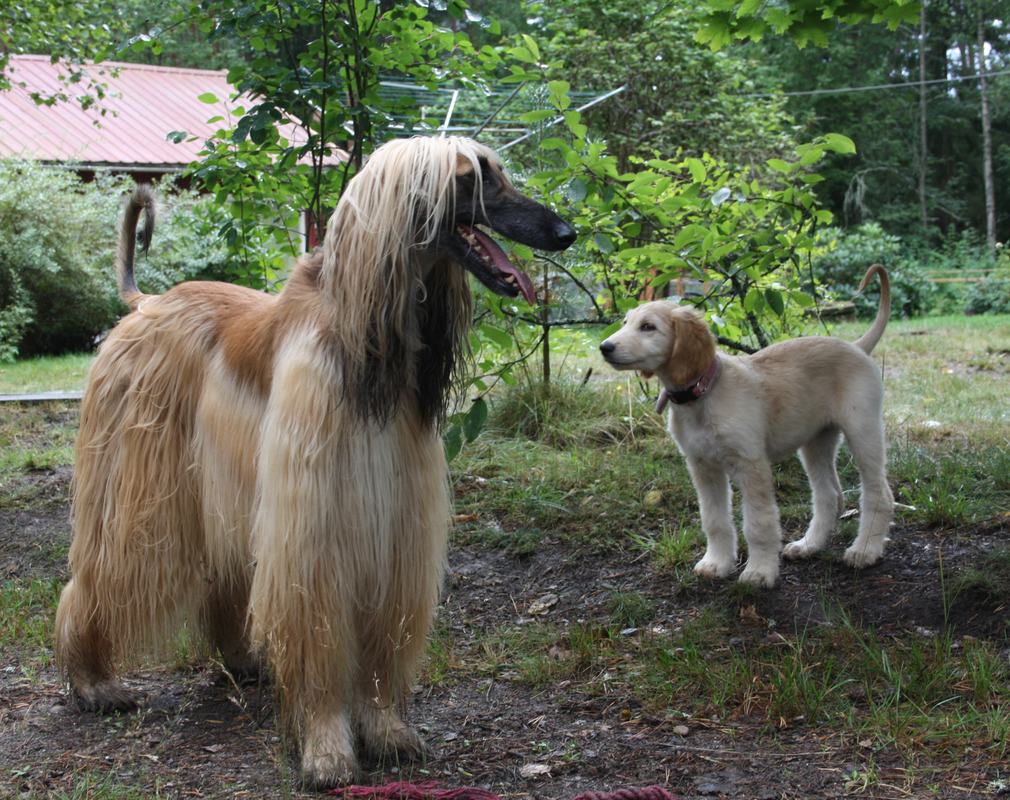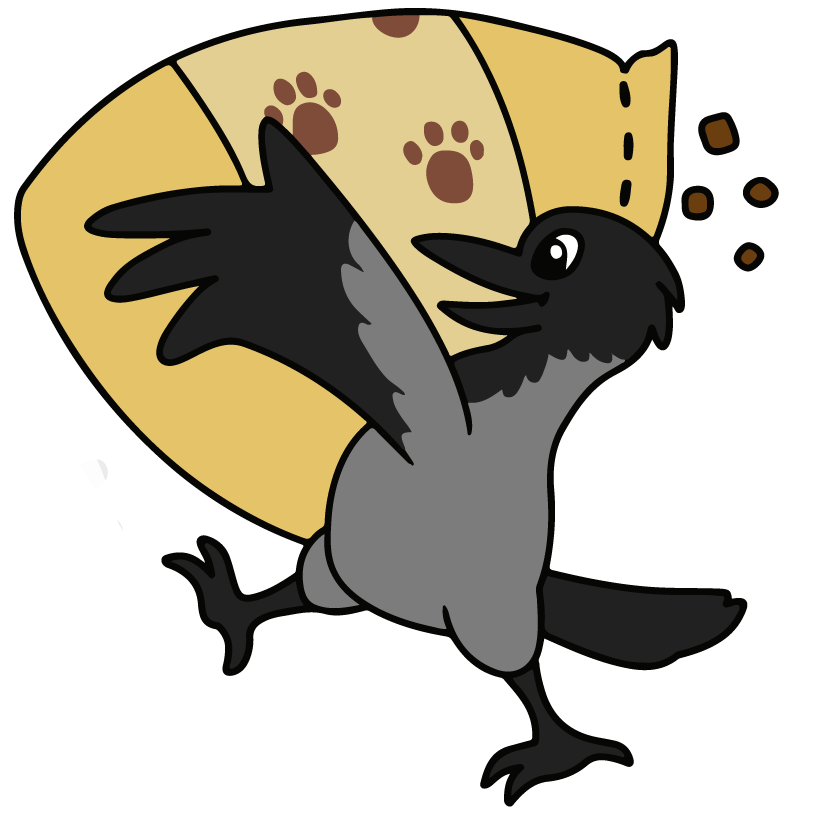It has been a while since I wrote. This will hopefully be a one timer; I have been very sick lately and very exhausted, and I had a very important test to focus into. Now however I am back in business, sort of, and I have some time at my hands to write about a matter I've been wondering lately and done some research on.Being an enthusiastic raw feeder, I've been looking at the vitamins more closely, and specially the vitamin E, that is often said to be the second most plentiful vitamin to be getting from the food. However, giving it some thought I've found myself wondering why would a carnivore with just omivore potential, specialized in the usage of fat and protein as energy source, need such high doses in vitamin mainly met in certain vegetables and plant sources? Internet is filled with different ideas of raw feeding. If you browse through sources you can't miss certain repeating numbers, such as the generally high needs for vitamins A and E. If you look at those sources deeper, however, there are hardly, if any, proof or reasoning based on studied facts. There are some, naturally, and from those some one is able to gather a basic guideline explaining certain dietary needs.
By far, the high need for Vitamin A is explained with evolution and metabolism of the dog. The need for vitamin D is also kind of explained, and the requirements in general are actually not that high. One is very able to achieve said amounts with just adding some fish to the food. However, by far there has been no explanation on why dogs would need such high doses of vitamin E. We will dive deeper into the world of dog nutrition in a second, but before that I want everyone to remember three things:
Lastly, no matter I have studied several sources, everything written here applies only as something I have read and personally found out and it is not to be taken as any ultimate truth. In general, I don't teach feeding. It is however my great passion, so what better than share the research with you. NeedsPeople, as an omnivore species, have adapted to use grains and vegetables and therefore can extract vitamins and minerals from plant sources far better than dogs, no matter some dogs more than others are able to somewhat use plant sources as well. At the moment the recommended daily doses of vitamin E (in alpha tocopherol) for people are
Vitamin E is mostly met in plants, though one can also get some from eggs. Meat also has vitamin E, but excluding fish the amounts are pretty low. Considering the metabolism and evolution of the human species the said amounts are easily explainable with our natural food sources. We CAN get decent amounts of vitamin E from our ”natural” diet, and therefore our need for that is considered believable. Now with the dogs, things make a turn to odd. Dogs are mainly carnivore. They can use plant sources and grains to some sort, but most of their diet in wild in the past has been wild meat of large prey animals. If we, for example, take reindeer as our example animal, the reindeer meat would have 0,8 mgs of vitamin E in 100 grams of meat. Therefore, a wolf eating for example 600 grams of meat would get 4,8 mgs of vitamin E. If we play some more and think maybe the wolf will eat some eggs when it finds a nest (about 2 mgs of vitamin E just to make it simple), we could somehow think it is probably realistic to think the wold would get >10 mgs of vitamin E daily. The current recommendations for dogs are 400 IU - 800 IU, some sources say 100 IU is enough per day. That means even at it's lowest the need of vitamin E would be approx 100 mgs a day. That is about TEN TIMES the amount of adult human male meant to consume foods that are rich in vitamin E. There are many articles about the benefits of vitamin E for dogs, mainly cellular health, immune system boost, faster recovery from stressful / physically exhausting activities and helping to maintain good skin and coat. The positive effects of vitamin E supplementing to sick animals and people alike have been tremendous. The amounts supplemented are high, sometimes multiple times the recommendations, and their effects have been positive when fed regularly during a short period of time. However, there have been no clear explanations on why the constant intake of vitamin E should reach the current recommendations, considering we people as omnivore would naturally consume much more vitamin E rich food sources and only need that 11 mgs a day, even during pregnancy. Nowhere it is stated why a dog as a specialized user of protein and fat would need such high doses of vitamin E on a regular basis, as it is clear it's a benefit during sickness. Evolutionally speaking, it makes no sense. For and againstPeople who supplement high amounts of vitamin E on regular basis, as well as many supplement producing companies, explain that the use of vitamin E based products is safe because the extra, unnecessary vitamin E does not store in fat. Vitamin E is a fat soluble vitamin, but some studies suggest our system wouldn't be able to store too much vitamin E and that the extra would be naturally disposed. The benefits of vitamin E, specially to sport dogs, combined with this talk in advance of supplementing E continuously. The question is, do the dog need such high doses? While it is undeniable that vitamin E does benefit dogs, how much do the dogs need it? As vitamin E is naturally met in vegetable oils, mostly, the amounts are not that high. Nature rarely has hundreds of milligrams of vitamin in anything. Giving the dog too much vegetable oils to fill the mentioned recommendations (it's impossible even, I tell you, if you don't plan changing your dogs water to sunflower oil) will work against the dog. The more there is fat in the food, the more the dog would need vitamin E to avoid the fats becoming rancid. The only possible way to face the recommended limits is using supplements, but then we meet the problem of unnaturally high amounts of vitamin without any explanation on why a carnivore would need such doses. In nature it would never meet even a fracture of those said amounts. Where lies the truth? What is ENOUGH, not too much but not too little? These days I am making sure my dogs get some mgs of vitamin E daily, gotten mostly from cold pressed sunflower oil, and I don't exceed the oil limit of 15 ml with the bigger dogs (this means about 10-13 mgs of vitamin E / day from the oil). If we calculate the need with 0,5 mg / kg, they get the minimum they need during most days, however I don't really think that is the actual minimum. Based of what I have read and studied, my personal opinion is that as long as dogs get some mgs daily, and as long as they live the usual life of a usual pet dog, they probably get enough vitamin E. Vitamin E defficiency is usually not met with healthy dogs, and this speaks in the favor of dogs being able to work fine without ridiculous amounts of vitamin E as long as they are healthy. Does the added vitamin E do good things? Probably it does. It is necessary for the dogs health to supplement it with such high amounts continuously? Probably not. Most sources seem to agree that higher doses should be fed in regimens, and this speaks in favor of the continuous supplementing of vitamin E on lower doses. If the high doses are fed only during some weeks, and the dog goes without most of the time, probably, if fed some vitamin daily, it will do fine with lower, more sensible amounts of vitamin E. Like said many times before, vitamin E is fat soluble, so feeding high doses of it during a short period of time is thought to ”fill up the stock”. If you feed the vitamin regularly, it doesn't necessarily need stocking since the absorbing is continuous. This might also mean that the dogs with less body fat, such as sighthounds, may benefit from lower amounts of vitamin E daily instead of higher doses here and then, as they don't have anything to store the vitamin in. Just a thought. I am no vet, I am no trained food expert, so don't take my words as truth. Like I have said, my opinions are based on both read facts, dog evolution, dog metabolism and some natural feeding sources.
0 Comments
Leave a Reply. |
Mistä on kyse?Koko elämänsä koiria harrastaneen raakaruokintafriikin ajatuksia, pohdintoja ja elämää koiralauman kanssa. Seuraa meitä
Päivitämme säännöllisen epäsäännöllisesti myös Facebookiin.
Historia
June 2022
Kategoriat
All
|



